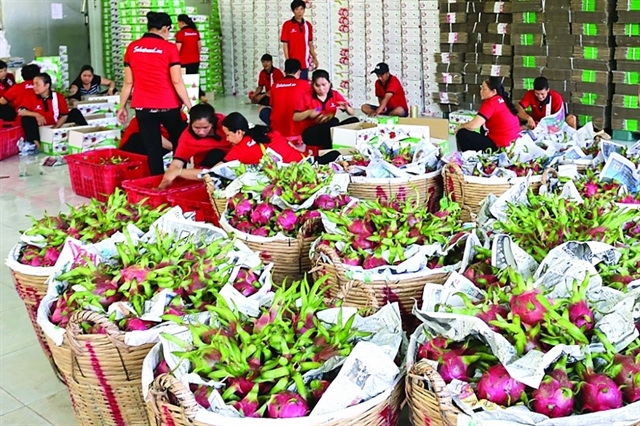Businesses need to be cautious about new information and contact import-export management authorities to avoid international trade fraud.

Businesses need to be cautious with new information and contact import-export management information focal points to avoid international trade fraud.
In the current volatile export situation, many importing countries have introduced stricter import conditions and standards.
However, instances of commercial fraud taking advantage of import-export information with very sophisticated procedures have appeared.
Recently, some Vietnamese agricultural export enterprises received requests from Chinese customers for a registration certificate from the General Administration of Customs of the People’s Republic of China, with registration and payment of fees through websites.
However, Vietnamese authorities have confirmed that this information is incorrect, warning businesses to be careful of these fraudulent tricks.
The two websites www.gacc.app and www.aqsiq.net show signs of fraud when using the English abbreviations of agencies under the General Administration of Customs of the People’s Republic of China in the website addresses, and at the same time requiring businesses to pay a fee of US$100 - 1,000 to register documents certifying export codes to this market.
There was no information on collecting fees from businesses for issuing codes or issuing certificates for this code in Chinese customs regulations or in Vietnamese regulations, said Ngô Xuân Nam, Deputy Director SPS Việt Nam Office, Ministry of Agriculture and Rural Development.
This incident shows signs of fraud targeting small and medium-sized businesses that do not clearly understand import and export paperwork regulations and lack experience in preventing and dealing with international trade scams.
In recent times, online commercial fraud has become increasingly common and occurs even in large markets.
According to a survey by PwC Việt Nam up to 52 per cent of Vietnamese businesses said they had been scammed when participating in international trade in 2022.
This figure is higher than the Asia-Pacific average (46 per cent) and the global average (49 per cent).
Therefore, businesses need to be cautious about new information and contact import-export management authorities to avoid international trade fraud. VNS





